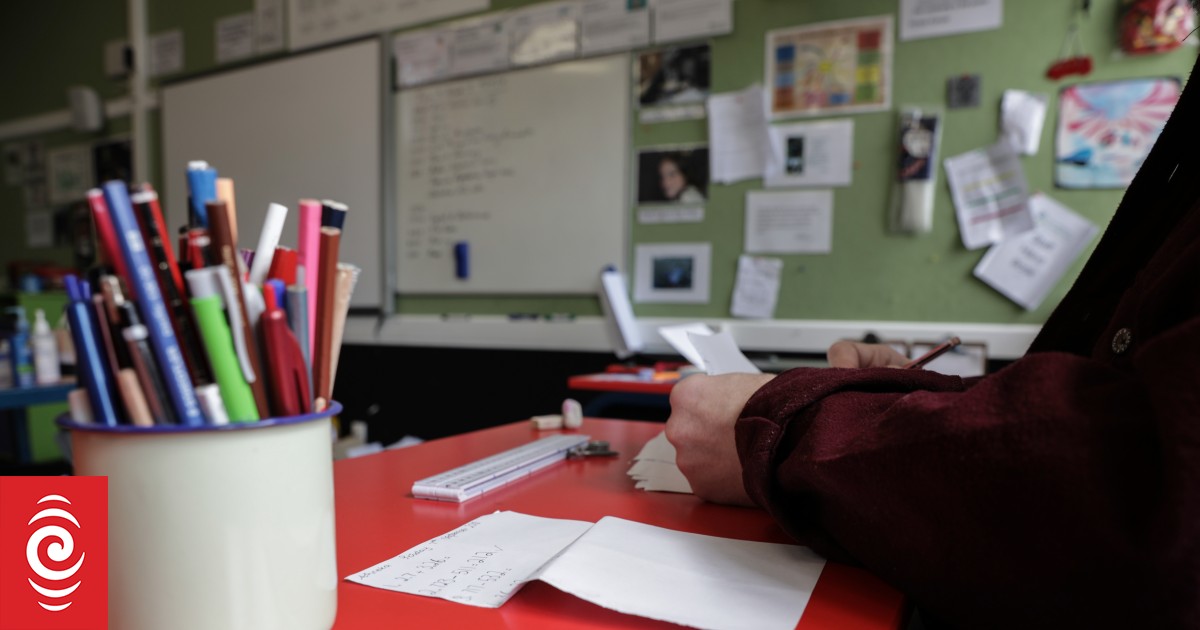Photo: RNZ / Richard Tindiller
Primary school teachers will now vote on strike action after rejecting the latest pay offer.
A vote on whether to accept an offer of a pay rise between 2.7 – 4.6 percent during the next two years, closed Monday evening after being received by the Education Institute (NZEI) on Friday.
The NZEI union said the offer didn’t address cost-of-living pressures or deliver the necessary support for staff and students.
It said members were decisive in their vote.
Union negotiation lead Liam Rutherford said the offer failed to keep pace with inflation – around 2.7 percent – and that felt like “the last straw” for teachers.
“If we want the best for children, we need to attract and retain great teachers, and right now, we’re seeing teachers burn out, leave for Australia or move to work in other professions.”
He said teachers also wanted increased support in the classroom “as the number of children with additional needs rises”.
Following the rejected pay offer, the union said a strike ballot would open tomorrow for primary teachers, principals, support staff and learning support specialists.
The ballot will close on 16 September.
Public Service Commissioner Sir Brian Roche said the offer was fair, fiscally responsible and met the the cost-of-living pressures.
“The offer rewards experienced teachers with meaningful pay increases. The offer for less experienced teachers still exceeds inflation.
“We’ve stretched our fiscal mandate to the limit.
“Teachers need to think hard about whether continued strike action is in anyone’s best interest, particularly with a very fair offer on the table.”
The Ministry of Education previously offered teachers three one percent pay rises over three years, before NZEI members held two weeks of stop-work meetings in August for primary schools and principals, including support staff and Ministry of Education learning staff.
NZEI said teachers felt undervalued and pay offers needed to ensure teachers didn’t go backwards.
Earlier this year, it said smaller classes and more teacher aides were needed to ensure all children had quality learning.
Secondary school teachers also took strike action last month over pay talks.
Sign up for Ngā Pitopito Kōrero, a daily newsletter curated by our editors and delivered straight to your inbox every weekday.

